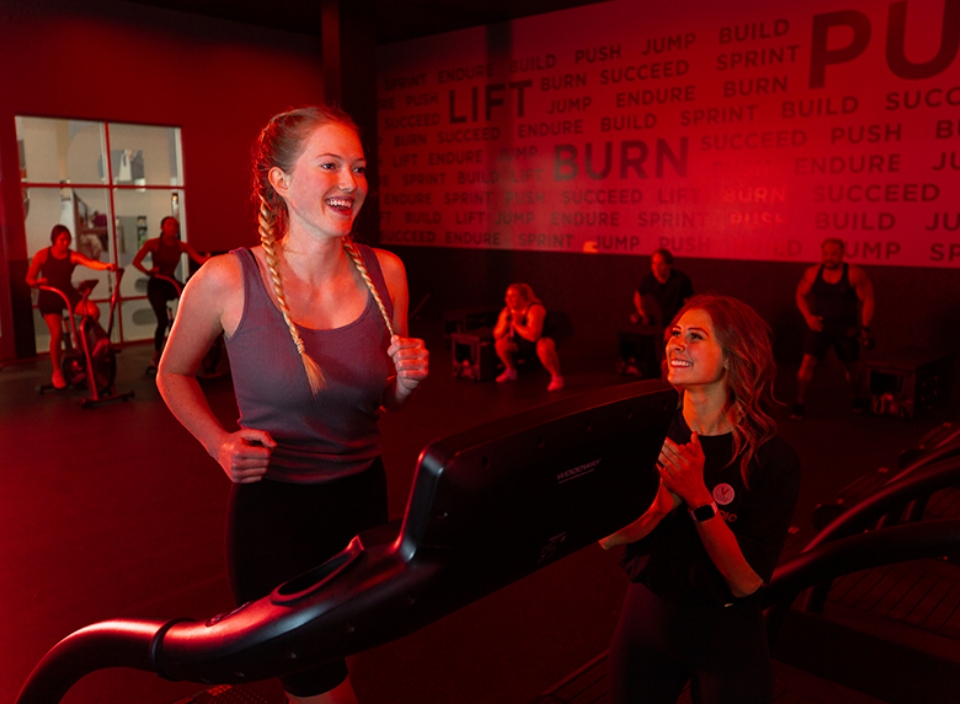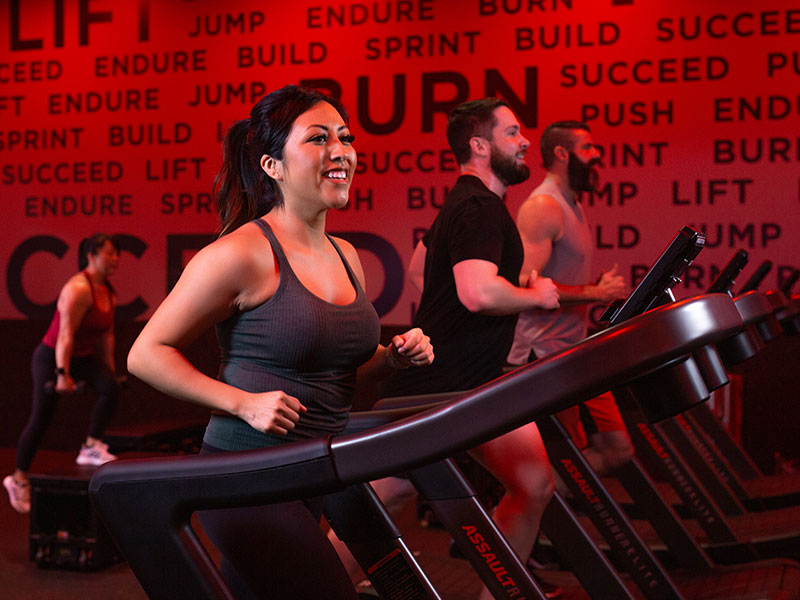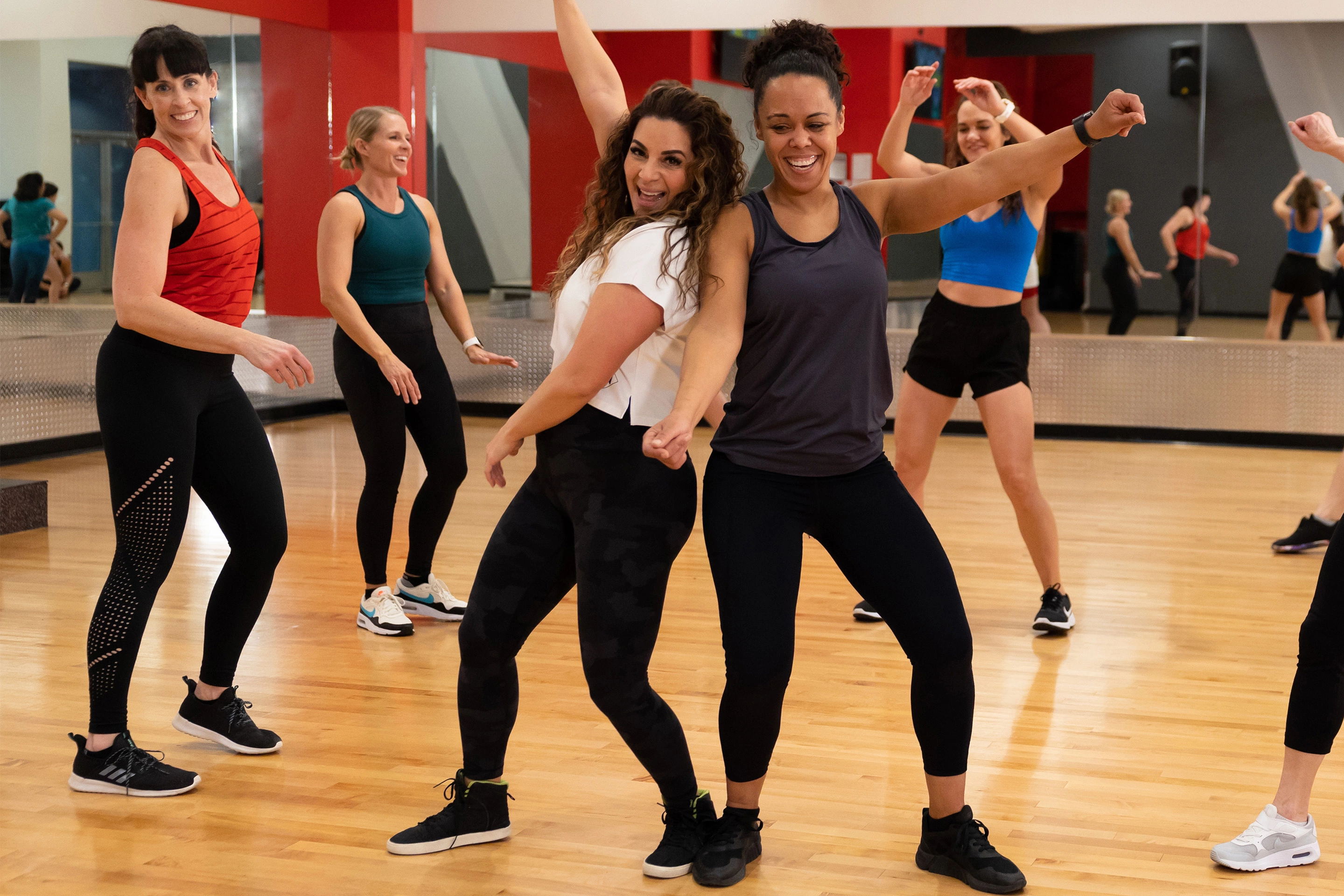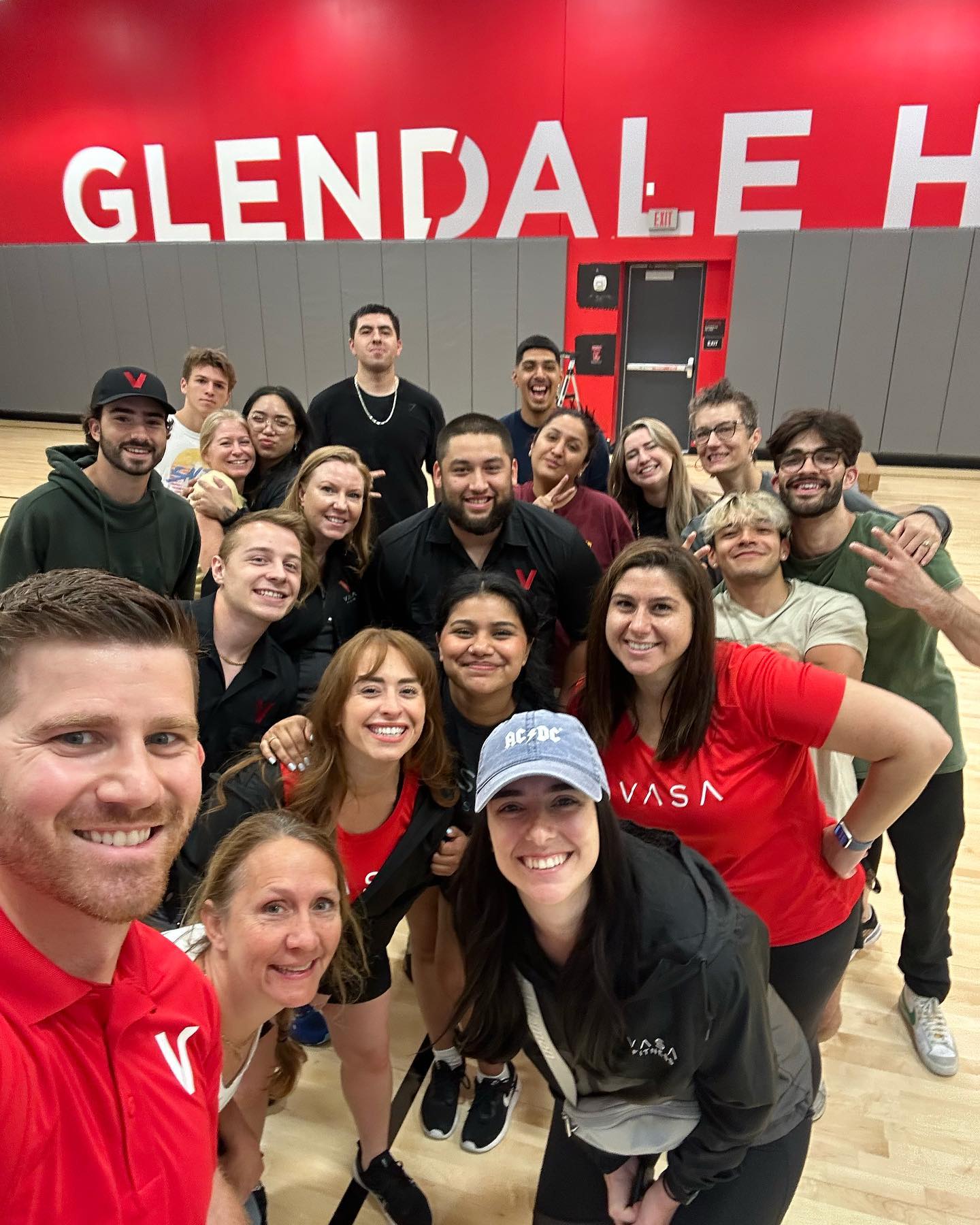How to Improve Heart Health with Cardio
Aerobic exercise, cardio, conditioning, physical activity—these are just a few of the many different terms used when talking about elevating your heart rate and keeping it there for a duration of time. For simplicity’s sake, we’ll call it cardio. Defining cardio training can be a little challenging especially when some confuse it with conditioning. To keep it simple, we’ll define conditioning as higher intensity (85% of estimated heart rate or higher) workouts completed for a shorter duration (think seconds to minutes).
Cardio and conditioning are both necessary for physical performance, but cardio tends to be more beneficial for long-term health for non-athletes. Cardio is known to have heart health benefits such as lowering resting heart rate, decreasing blood pressure, and improving circulation, but there are a number of other benefits that make getting a little sweaty worth the effort.
During cardio your body uses big muscle groups to create movement which requires more oxygen from the lungs. You’ll notice deeper and sometimes faster breaths in addition to a faster heart rate. The more you challenge the lungs and muscles, the stronger they will become over time, which is important for quality of life as we age.

No matter your age or skill level, cardio is an underrated type of exercise that helps to improve other things like:
- Recovery, from hard workouts by promoting blood flow to tired muscles.
- Mood, by allowing the body to release endorphins, the feel-good hormones made by the body.
- Stamina is usually increased due to additional mitochondria (the powerhouse of the cell) in muscle cells, allowing for more energy production that can aid longer workouts.
- Managing chronic conditions like Type II Diabetes and Metabolic Syndrome are important to both quality of life and longevity and can be improved by completing just a little cardio each week.
- Sleep, by promoting better sleep quality and ultimately better recovery.
- Stress. Stress in real life is just as hard on the body as a hard workout can be and using cardio training can help you manage and reduce stress when done regularly.
Whether you’re just starting out on your fitness journey or a seasoned pro, completing a minimum of 150 minutes each week (or about 30 minutes per day) of moderate activity can help improve your health and performance.
Since steady cardio is so important to health and performance, we encourage you to participate in our Myzone challenge from February 12-26. Participants will be awarded MEPs based on the amount of time they spend in the blue and green zones (60-79% of estimated max heart rate). At the end of the challenge, all participants will be entered to win a bag of VASA gear. Happy sweating!

SUBSCRIBE TO OUR BLOG
Enter your email to start receiving our blog emails!









